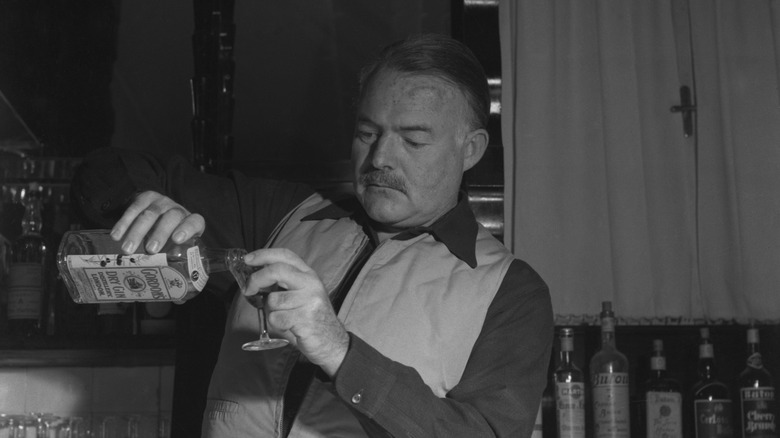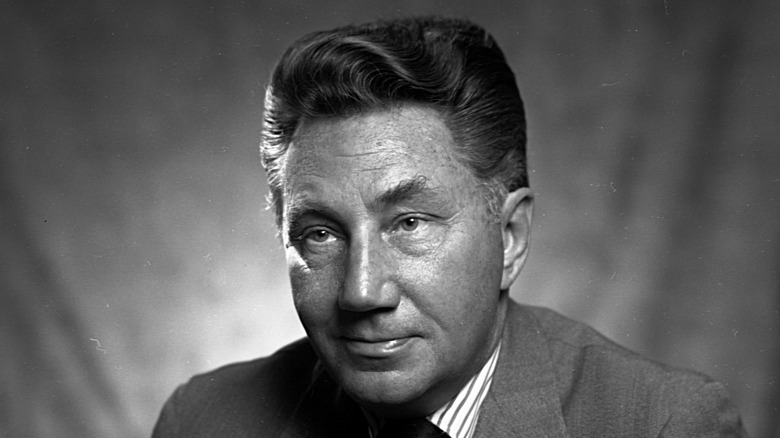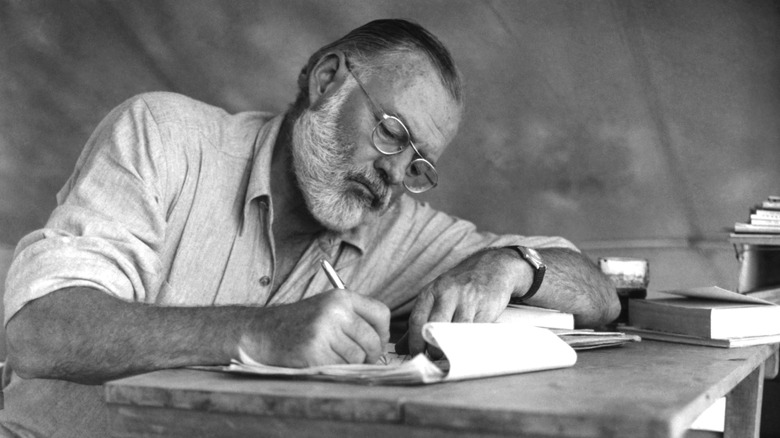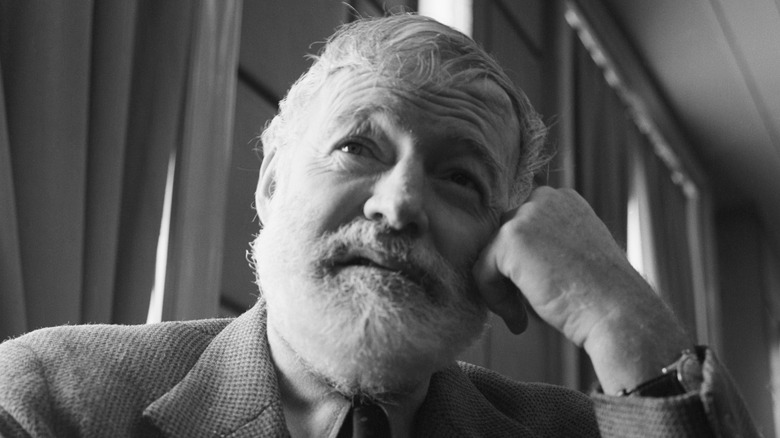Did Hemingway Really 'Write Drunk, Edit Sober?'
The Nobel Prize-winning American novelist Ernest Hemingway has persisted in the popular imagination as the archetypal tortured writer. His biography is almost as famous as his writing: While still a teenager, the budding wordsmith volunteered as an ambulance driver during World War I and was stationed in Italy, where he saved the life of an Italian soldier, received serious injuries, and had a whirlwind romance with a nurse caring for him. In later life, the writer survived multiple plane crashes. He died by suicide aged 61.
Hemingway fans also became obsessed with his writing practice. Most famously, the phrase "write drunk, edit sober" has become a meme in internet writing circles, seemingly encouraging writers to connect with their bohemian selves and reach for the bottle to uncork their literary muse. But there's just one problem: Hemingway never said it, nor did it appear in any of his published work or private correspondence. It's a misattribution as well as a misquote, and while Hemingway certainly enjoyed partaking in a drink or several, the evidence shows that his view when it came to mixing alcohol and writing was quite the opposite.
Where the quote really comes from
The famous morsel of writing advice "write drunk, edit sober" isn't a piece of real-world wisdom at all. In fact, the phrase actually comes from a 1964 novel by the American humorist Peter De Vries (pictured) named "Reuben, Reuben" and reads: "Sometimes I write drunk and revise sober, and sometimes I write sober and revise drunk. But you have to have both elements in creation — the Apollonian and the Dionysian, or spontaneity and restraint, emotion and discipline."
But the line is far from instructive. In De Vries' novel, it is uttered in an interview given by a Scottish-Welsh poet named McGland. As noted by The New York Times, McGland is modeled on the tragic poet Dylan Thomas, who died tragically young after a night of drinking at the age of 39. In "Reuben, Reuben," McGland recalls lines he removed from a poem he had written, concluding they were so poor that he must have been drunk when he wrote them. His advice, it seems, is drenched in irony.
Hemingway's real writing advice
So what did Ernest Hemingway really think when it came to the relationship a writer ought to have with their poison of choice? While the Nobel laureate was tentative about discussing his writing processes in public, he did gave out nuggets of wisdom in his private correspondence, often sharing his thoughts with other writers who would go on to become famous themselves. A good deal of the novelist's thoughts on the art of writing are collected in the volume "Ernest Hemingway on Writing," edited by Larry W. Philips and first published in 1984.
The first discussion of alcohol in the chapter titled "Working Habits" comes in a letter to Hemingway's published Charles Scribner, discussing how he tallies his word count after a day of writing. "I always count them when I knock off and am drinking the first whiskey and soda," he wrote. "Guess I got in the habit writing dispatches." The implication, of course, is that Hemingway had his first drink immediately after finishing work for the day.
Hemingway's works echo his letters on this point. "My training was never to drink after dinner nor before I wrote nor while I was writing," he claims in his 1964 Paris memoir "A Moveable Feast."
Alcohol and Hemingway's health
"I have never been a drunk nor even a steady drinker (You will hear legends that I am — they are tacked on everyone that ever whole about people that drink) ... all I want is tranquility and a chance to write." So wrote Ernest Hemingway to his mother, Grace, in 1927 (via "Ernest Hemingway on Writing").
It is true that copious alcohol consumption was undoubtedly a significant part of the Hemingway legend and image — of his ultra-macho persona the same way that his war experience, big game hunting, and bullfighting interests were. But Hemingway's attempt to minimize his drinking — which comes, tellingly, in a letter to his mother — ought to be taken with a pinch of salt. While the "For Whom the Bell Tolls" author may not have drunk quite as often during the act of writing as the famous misattributed quote would have us believe, alcohol was certainly a constant in his life — one which experts now believe likely contributed to his cognitive decline in his later years, exacerbating brain damage caused by several major concussions.
If you or someone you know is struggling or in crisis, help is available. Call or text 988 or chat 988lifeline.org.
If you or anyone you know needs help with addiction issues, help is available. Visit the Substance Abuse and Mental Health Services Administration website or contact SAMHSA's National Helpline at 1-800-662-HELP (4357).



